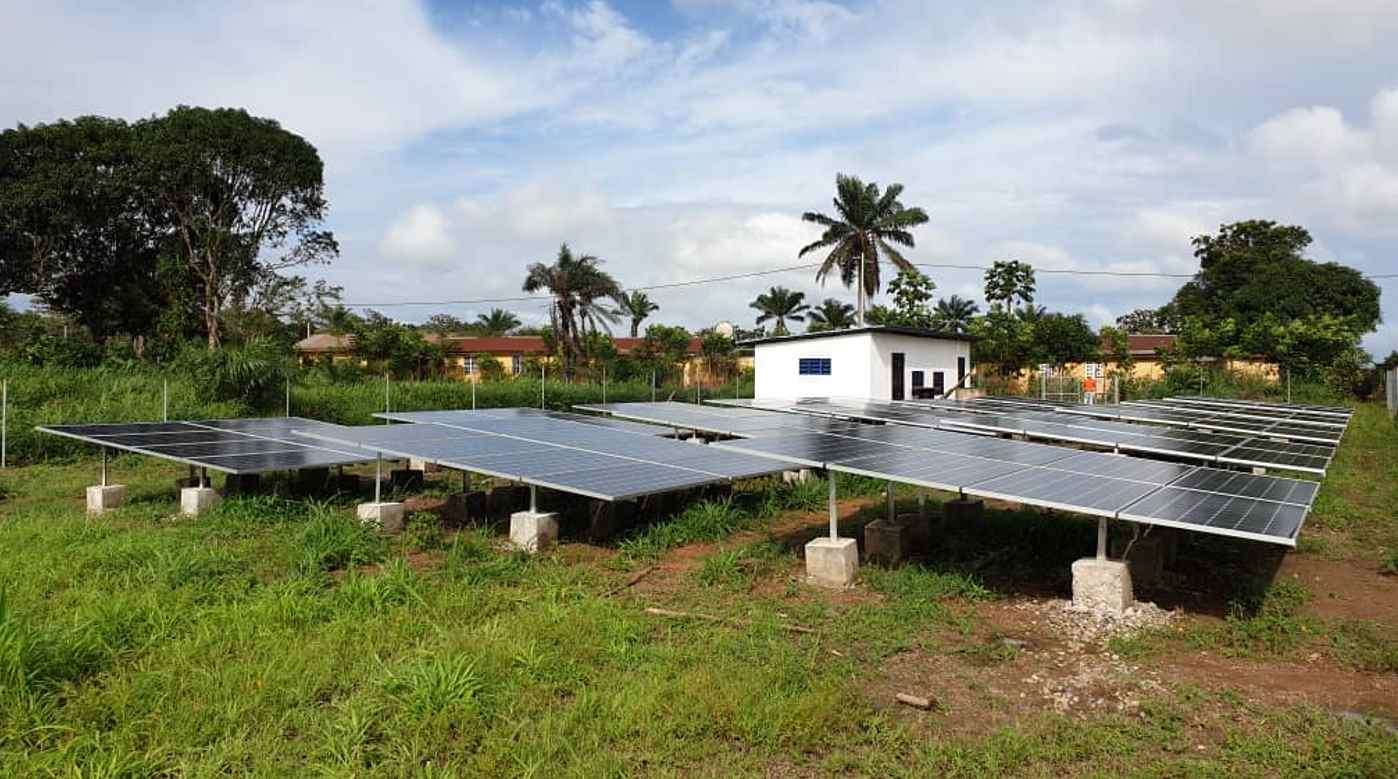Australian Company Works to Make Energy From Nuclear Fusion - But Without the Fiery Ball of Plasma
Using super powerful lasers to create clean, emission-less energy, HB11 Energy is expanding options for commercial nuclear fusion.

Remember when cell phones needed 2-4 hours to fully charge? If you thought that was a pain in the rear, try waiting 60 years.
Fortunately, with the advances of solar electricity, communities in Sierra Leone who have been beyond the reach of the state's power supply for decades finally have power to call their own.
Financed as part of the UK's Rural Renewable Energy Project (RREP) in the wake of the Ebola outbreak, the 32 solar microgrids totaling 1.7 megawatts by the name of the Movamba Project will provide power to communities totaling 80,000 people—including 23 health centers.
One such grid has already gone online—in the commune of Foredugu, which has been without regular power for 60 years.
"Light is right and every Sierra Leonean should have access to electricity," said Hon. Alhaji Kanja Sesay, Minister of Energy for the country back in February at the commissioning of the microgrid, who added that the provision of electricity at Foredugu and other sites is strategic—as light is bringing economic development and improves the livelihood of people living in rural areas.
Regarding the Minister's claim, the Movamba Project is already seeing remarkable advances in rural progress. Currently, 21 of the solar microgrids financed by the RREP have either been started or finished, totaling 630 kilowatt hours for 30,000 people.
"These people include Kadiatu Maseray, who with affordable and reliable electricity has increased the profits of her cold drinks business by 300% and the Conakry Dee Junior School, which has seen a 25% increase in attendance and a 235% increase in students passing since being connected to its local mini-grid," said Nicole Poindexter, CEO and Founder of Energicity Corporation, the West Africa-based renewables firm in charge of the project.
The RREP money received was just £1.25 million ($1.72 million), or what amounts a rounding error in the books of big governments like the UK, and shows just how much impact grants like this can have when handled correctly.
POWER UP the Hope—Share This Story on Social Media…
Be the first to comment